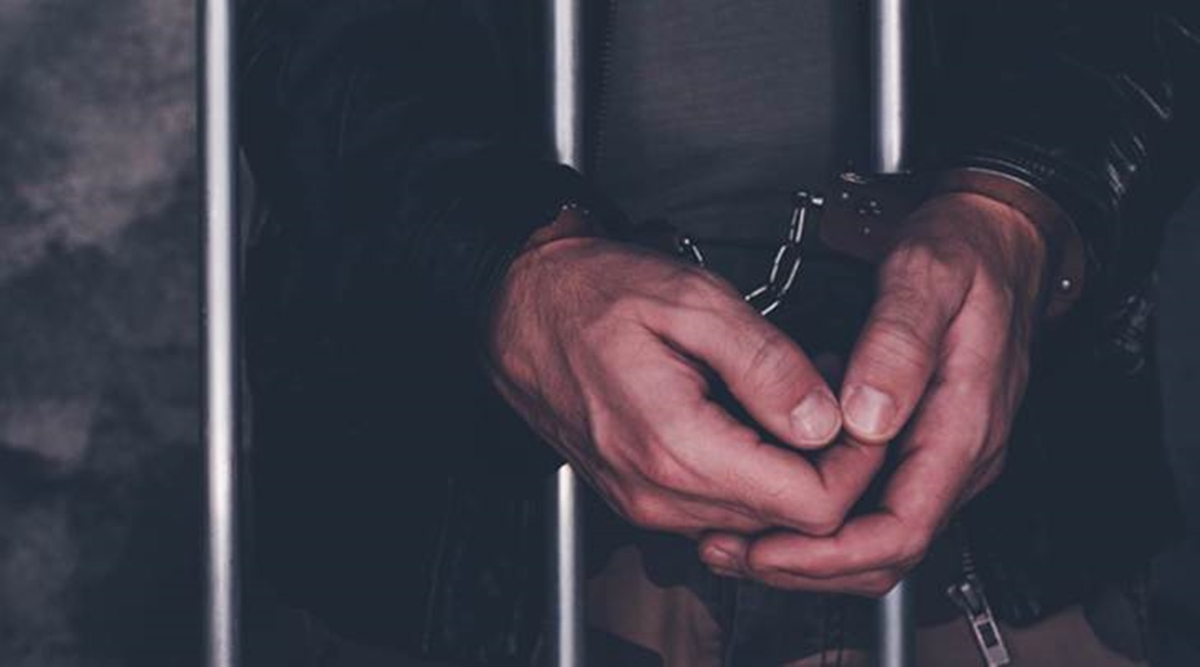 On Wednesday, Special Judge A T Wankhede had accepted the guilty pleas of Ahmed and Sayed.
On Wednesday, Special Judge A T Wankhede had accepted the guilty pleas of Ahmed and Sayed. The first accused in Maharashtra to plead guilty to Islamic State links were on Friday sentenced to eight years by a special court in Mumbai. The time Rizwan Ahmed (25) and Mohin Sayed (32) have spent in jail since 2016, when they were imprisoned, would be counted as part of their sentence.
.While Sayed was among the four youth who went missing in 2015 from the Malvani suburb area of Mumbai and were later found to have joined the IS, Ahmed, a resident of UP, had been arrested for propagating IS ideology.
They were sentenced to eight years under Section 20 (being a member of a terrorist organisation), seven years under Sections 38 and 39 (offences related to membership and support to a terrorist organisation), and five years under Section 18 (conspiracy) of the UAPA, apart from IPC Section 120B (criminal conspiracy). The sentences will run concurrently.
They were also sentenced to a fine of Rs 35,000 each.
Previously, similar guilty pleas were submitted in IS cases being prosecuted by the NIA in Delhi. Fifteen people were sentenced in these, one to 10 years, and the others to 5-7 years.
On Friday, Sayed and Ahmed pleaded before the court that they were very young when they came under the influence of the IS’s online propaganda in 2015, and did not realise the consequences of their actions. They said their families had suffered on account of them, and they wanted to reform and return to the mainstream.
Ahmed said his studies had come to a halt in his five-year imprisonment. Sayed said his family including his two minor children were suffering.
Lawyer A R Bukhari, representing the two, said leniency should be shown to them as they were very young at the time, and were remorseful. He said the other mitigating circumstance in their favour was that they had not been involved in any act of violence, including to property or life.
He urged the court to consider the six years spent in jail already by Ahmed and five-and-a-half by Sayed, to be their punishment.
Arguing against this, Special Public Prosecutor Prakash Shetty, representing the NIA, said: “Though the accused have shown remorse and (pleaded) guilty, the sentence should send out the message that committing an offence and pleading guilty cannot be an escape.”
Shetty, however, added that while the two faced charges that could entail a maximum of life imprisonment, seven years were sufficient as punishment.
The court said it had to maintain a balance between the aggravating and mitigating circumstances. In its order, it noted the submissions regarding the age of the accused, their remorse and the fact that their offences did not include any harm to life or property, but said their offences were different than others.
Of the four youth who left Mumbai in December 2015 and were traced to the IS, two had returned, were “deradicalised” and made witnesses in the case involving Sayed and Ahmed. They were hence never arrested. One of the four, Ayaz Sultan, who is suspected to have posed as a freelance photographer to enter Afghanistan and from there moved on to IS-occupied territory, remains untraced. Sayed was arrested on June 15, 2016.
Ahmed was arrested on January 22, 2016, with the chargesheet filed by the NIA accusing the Uttar Pradesh resident of coming to Maharashtra to propagate IS ideology among youth.
Ahmed and Sayed had approached court last month stating that they had reflected on their actions and wanted to plead guilty.
With their plea, the trial in the case is over. More than 35 witnesses deposed in the case, with the chargesheet citing 228 witnesses, including 102 protected ones.
“Facebook aur social media pe videos dekh ke main galat rah pe chala gaya tha… Mera ladakpan tha (I went on the wrong path seeing Facebook and social media videos… I was immature),” Ahmed, who was a student at the time of his arrest, told the court when asked about the quantum of punishment he should be awarded.
He said while he could not complete his education, his younger brothers were still studying. “I am the eldest. My father had a government job, but he is retired now. My family is in financial difficulty,” Ahmed said.
“I made a mistake, my family got defamed. The whole area still talks about it,” Ahmed told the court.
Sayed said he had realised his mistake within six months of imprisonment. Married with two small children, he was a rickshaw driver and earned around Rs 350 a day at the time of his arrest.
His family, including parents and siblings, had told police that he was not very religious. They said they had noticed changes in him after he received a touch phone from a friend as gift, just months before he left home.
“I realised subsequently how it was all propaganda, that the real issue was political, it was about oil and drugs,” Sayed said after he pleaded guilty, adding that he wanted to accept his actions and put them behind him after serving time.
“My children were affected the most. They hope for me to return home,” Sayed said, pleading with the court to let him put his life back together again.
It was he who first began looking at the legal option of pleading guilty after he came to know of a similar case in Delhi.
- The Indian Express website has been rated GREEN for its credibility and trustworthiness by Newsguard, a global service that rates news sources for their journalistic standards.

